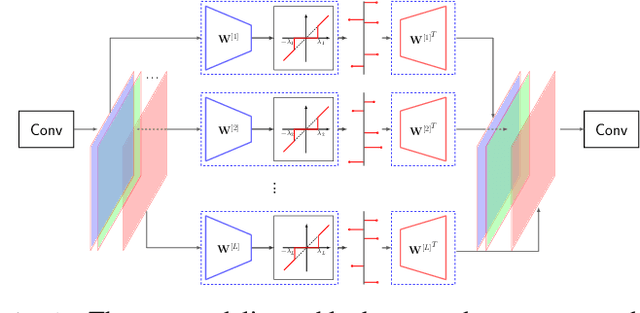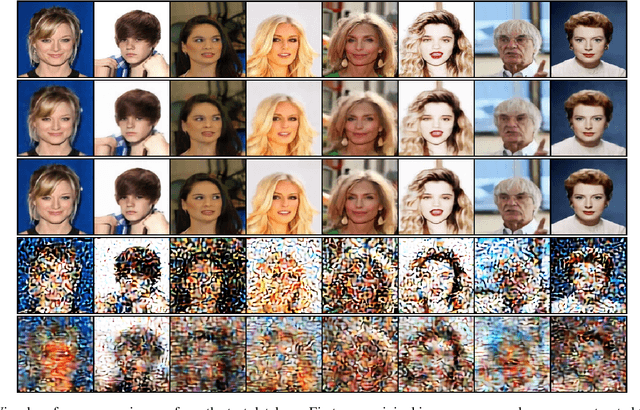Privacy-Preserving Image Sharing via Sparsifying Layers on Convolutional Groups
Paper and Code
Feb 04, 2020



We propose a practical framework to address the problem of privacy-aware image sharing in large-scale setups. We argue that, while compactness is always desired at scale, this need is more severe when trying to furthermore protect the privacy-sensitive content. We therefore encode images, such that, from one hand, representations are stored in the public domain without paying the huge cost of privacy protection, but ambiguated and hence leaking no discernible content from the images, unless a combinatorially-expensive guessing mechanism is available for the attacker. From the other hand, authorized users are provided with very compact keys that can easily be kept secure. This can be used to disambiguate and reconstruct faithfully the corresponding access-granted images. We achieve this with a convolutional autoencoder of our design, where feature maps are passed independently through sparsifying transformations, providing multiple compact codes, each responsible for reconstructing different attributes of the image. The framework is tested on a large-scale database of images with public implementation available.
 Add to Chrome
Add to Chrome Add to Firefox
Add to Firefox Add to Edge
Add to Edge